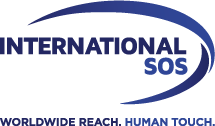Situation Update Middle East
Sally Llewellyn, Regional Security Director, EMEA, provides information and advice, “Iranian Supreme Leader Ayatollah Ali Khameini has vowed to seek revenge for the death of Soleimani, arguably the country’s most valued military commander and widely considered the principal architect for its regional engagements. It is difficult to predict the exact timeframe and location of a response, but a notable retaliation is highly likely given the significance of Soleimani’s death.”
“Certain locations will see a higher risk of retaliation, namely, those with Iran-aligned forces active in them, such as Iraq, Lebanon and Syria. In general, however, travel to the majority of the countries in the Middle East, particularly the Arab Gulf states, can continue in line with our existing travel advice. Nevertheless, we are advising our clients to closely remain abreast of related developments and particularly to exercise caution and heightened situational awareness in the vicinity of US military and diplomatic interests. Travellers should ensure passports and visas are on hand, and maintain essential provisions (food, water, medicine) in accommodation and workplace to support a stand-fast period of at least one week if needed.”
“Although Iran-backed armed groups are present around the Middle East, the most likely arena for an immediate response will be in Iraq, such as in the form of attacks against US military and diplomatic interests by Iran-backed entities. Precedent suggests that Iran is likely to adopt a measured response and that stops short of a formal act of war. This may include cells of militants linked to Iran and is not a threat that is confined to the Middle East.”
“There have been several positive indicators that suggest an ease of bilateral tensions between Iran and Gulf Arab states from previous levels. Saudi Arabia’s Crown Prince Mohammed bin Salman has reiterated in several statements that a military confrontation is neither in the Kingdom’s interest, nor the region more broadly. International media reports have previously echoed similar sentiments by reporting bilateral discussions between Iran and some Arab Gulf states. Other states, including Bahrain and Qatar, have called for US-Iran tensions to be de-escalated.”
For the latest information and advice, International SOS members are advised to contact their Assistance Centre, register for email alerts and review the updates on Travel Security Online and through the International SOS portal. We also advise clients and members to download the International SOS Assistance App, here.
Notes to Editors
About the International SOS Group of Companies
The International SOS Group of Companies is in the business of saving lives, protecting your global workforce from health and security threats. Wherever you are, we deliver customised health, security risk management and wellbeing solutions to fuel your growth and productivity. In the event of extreme weather, an epidemic or a security incident, we provide an immediate response providing peace of mind. Our innovative technology and medical and security expertise focus on prevention, offering real-time, actionable insights and on-the-ground quality delivery. We help protect your people, your organisation's reputation, as well as support your compliance reporting needs. By partnering with us, organisations can fulfil their Duty of Care responsibilities, while empowering business resilience, continuity and sustainability.
Founded in 1985, the International SOS Group, headquartered in London & Singapore, is trusted by 12,000 organisations, including the majority of the Fortune 500, as well as mid-size enterprises, governments, educational institutions and NGOs. 12,000 multicultural medical, security and logistics experts stand with you to provide support & assistance from over 1,000 locations in 90 countries, 24/7, 365 days.
To protect your workforce, we are at your fingertips: www.internationalsos.com


